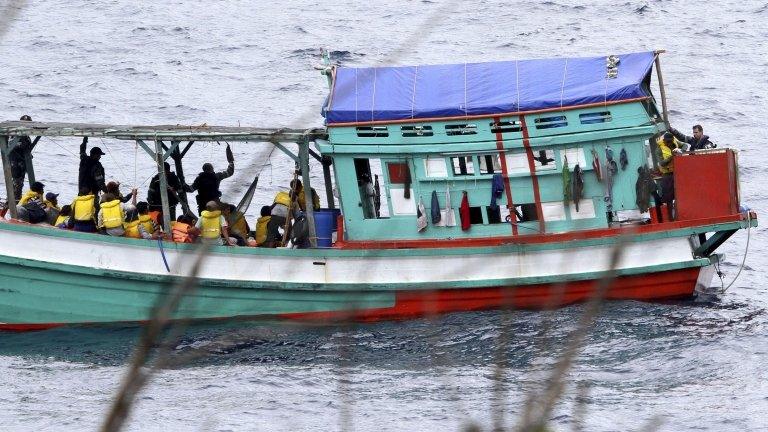Australia asylum seeker 'brain dead' after infection - activists
- Published
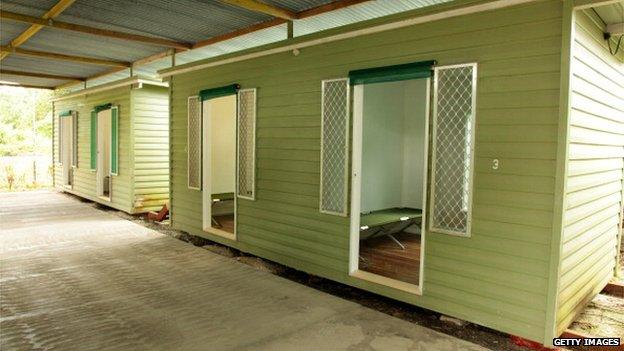
Activists say living conditions at the Manus Island detention centre, seen here in a 2012 photo, are poor
An Iranian man seeking asylum in Australia has been declared brain dead after an infected cut led to septicaemia, a refugee activist says.
Hamid Khazaei, 24, had been in a detention centre on Manus Island in Papua New Guinea.
The Iranian was transferred to the mainland for treatment last week but had a heart attack, the activist said.
Mr Khazaei's case follows the death of another Iranian in violence at the same centre in February.
According to the Refugee Action Coalition, Mr Khazaei cut his foot about two weeks ago. Spokesman Ian Rintoul told the BBC that the wound was very small, but got infected quickly.
Mr Khazaei sought medical attention a number of times, and by the time he received it "he had to be helped to walk", said Mr Rintoul.
He was transferred to a hospital in Brisbane last Wednesday, where he subsequently suffered a heart attack.
His family were informed that he had become brain dead on Tuesday, the activist said.
The hospital would appoint a guardian to decide whether life support should be withdrawn, he said, with the young man's family unlikely to visit because of the airfare cost.
Greens Senator Sarah Hanson-Young claimed there was a delay in transferring Mr Khazaei to the hospital because a request from the medical service provider was denied, reported Fairfax Media., external
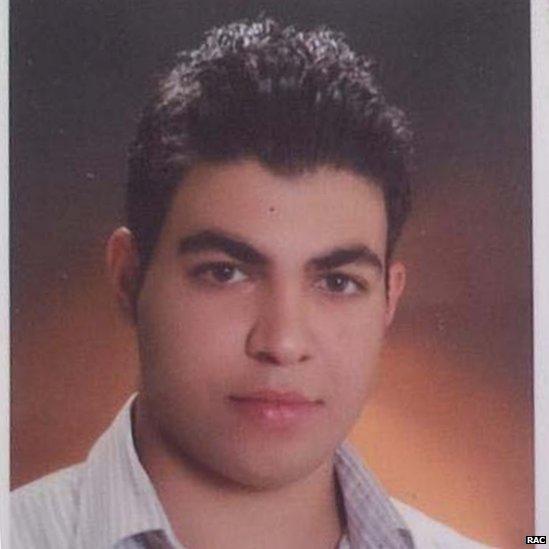
Mr Khazaei suffered a heart attack while in hospital, a refugee activist says

Australia and asylum
Asylum-seekers - mainly from Afghanistan, Sri Lanka, Iraq and Iran - travel to Australia's Christmas Island on rickety boats from Indonesia
The number of boats rose sharply in 2012 and the beginning of 2013, and scores of people have died making the journey
Everyone who arrives is detained. They are processed in camps in Christmas Island, Nauru and Papua New Guinea. Those found to be refugees will be resettled in PNG, not Australia
The government is believed to be towing boats back to Indonesia. It has also returned asylum seekers intercepted at sea to Sri Lanka.
Rights groups and the UN have voiced serious concerns about the policies.

Mr Rintoul linked Mr Khazaei's case to poor hygiene at the Manus Island camp.
"Skin and fungal infections are endemic. The toilets are often blocked and have to be hosed out, so sewage gets on the floor. If the tide is high, the raw sewage also comes back up," he said.
A spokesman for Australia's Immigration Minister Scott Morrison said: "The individual has not died. In respect to the family of the individual, further details are not able to be provided."
The spokesman added that the government was following "normal processes" and had engaged his family.
The immigration department said last week that its chief medical officer was reviewing the background to Mr Khazaei's condition and medical care while he was at Manus Island.
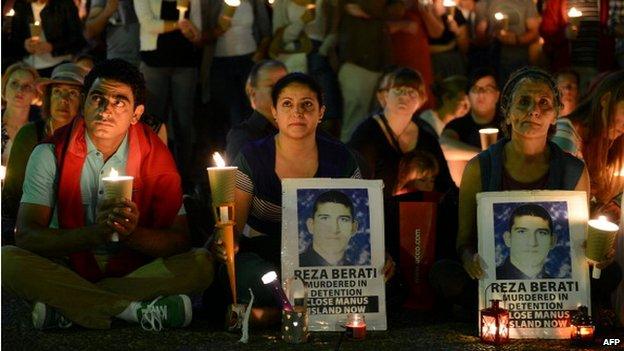
Iranian asylum seeker Reza Barati's death in February at Manus Island prompted protests from activists
In February, an outbreak of violence at the centre left several people injured and one dead.
A report on the incident later found that Reza Barati had been brutally beaten by both security staff and PNG local residents who had entered the centre.
In recent months, the Australian government has come under increased scrutiny for its treatment of asylum seekers who arrive by boat.
Australia detains all those who arrive by boat to seek asylum. Detainees are held on Christmas Island and in camps in Papua New Guinea (PNG) and Nauru. The UN and rights groups have strongly condemned conditions in these offshore camps.
The government says its tough asylum policies are intended to save lives by stopping people getting on dangerous boats to make the journey to Australia.
- Published26 May 2014
.jpg)
- Published31 October 2017
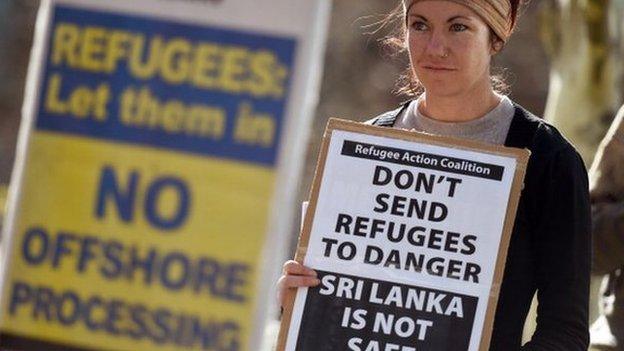
- Published31 July 2014
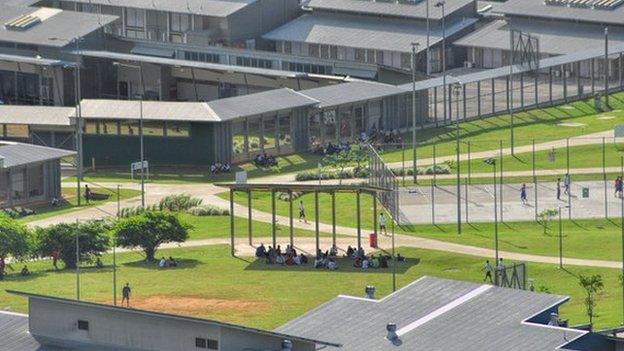
- Published19 July 2013
